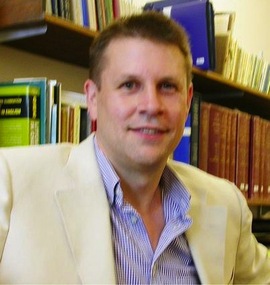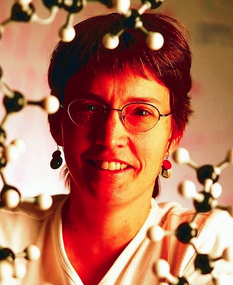The giant spaceship full of survivors of the apocalypse waits to escape from a doomed planet but which discipline will lead this new post-apocalyptic world?
Students and professors gathered in Boliou 104 to decide last Wednesday. Five professors from five different disciplines argued for why their discipline should wind up supreme after the apocalypse.
Trish Ferrett advocated for chemistry, Tim Raylor for English, Sheri Goings for Computer Science, Martha Paas for Economics and Roger Jackson for Religion.
Each professor was allowed to first make their case for their discipline and then given time to rebut the cases of other professors. A period of time was also reserved for student questions and then for closing statements by the professors.
Ferrett started by discussing the character of the apocalypse: refugee crises, infectious diseases, unstable food supplies, pollutants. “…this is the change we cannot adapt to,” she said. Chemists, she argued, could solve the apocalypse with their problem solving skills. Starting in college, they work in interdisciplinary teams to solve the world’s problems.
Raylor started by addressing a primary concern with English: “in comparison (to other disciplines), English seems a very soft and rather wooly subject.” However, he suggested “it’s wooliness, it’s capriciousness, that makes it the one you want to save.”
By studying great works of literature like Milton’s Paradise Lost, Raylor said, a person studies religion, the history of political thought, the history of astronomy and “the nature of material existence itself.”
Paas appealed to how fundamental economics is to other disciplines and “how everyone thinks he or she is an economist.” She also addressed the idea of unlimited wants amid scarcity, after the apocalypse, saying, “first we would have to eat and then we would need to use resources.”
Goings decided to talk about how computers will cause the apocalypse. “Google is inventing skynet right now, computers are going to take over the world,” she said, “and we need computers to fight them.”
She went on to remind the audience that computers also connect people from around the world, saying, “We’re going to need every person in the world to solve our problems.” In closing her speech, she ended with a question, “can you really imagine a world without lol cats?”
Jackson acknowledged that religion was a double-edged sword, but said, “you cannot understand the deepest wellsprings of human actions without religion.” He employed a quote from John Stuart to discuss the importance of religion. Stuart once said, “Religion. It’s given people hope in a world torn apart by religion.”
In the end, when the students in the auditorium voted, computer science emerged victorious. Other disciplines received significant student support, but not enough to depose computer science.
“I feel like her victory was fairly well deserved - honestly, this kind of a debate (in my book) is biased in favor of the more technical disciplines,” Daniel Simmons-Marengo ‘14, a computer science major said.
Many students agreed that people would need technical skills during the apocalypse. “I imagine practical things like knowing how to build a shelter, start a fire, hunt or farm seem far more important than any academic discipline,” said Indigo Scott ‘14.
In addition to its humor, the event (which was organized and moderated by Learning and Teaching Fellows Rachel Levit Ades, Chris Frills, Rachel White, who worked with fellow seniors Rhys Lindmark and Taylor Want) delivered valuable lessons about a liberal arts education.
“It is useful and enriching to be able to think like an economist, a religious studies scholar, a chemist, a computer scientist and a literature scholar,” said White. “The great thing about Carleton is that we get a chance to do all of those things.”
“The event wasn’t about which discipline was the best,” said Frills. “It was about being able to hear them all out and recognize that all are valid and are worthy of being heard.”
Also, how many times does a student see a professor defend their disciplines performance post-apocalypse? “It funnier than I expected it to be - the professors’ attacks on their rival departments were always highly entertaining,” said Scott.
Ades said, “it would be really great if it became a Carleton tradition, perhaps with different departments every year.”
Hopefully, the world will not end (sorry, chemists!) and students can continue enjoying the debate in years to come.


